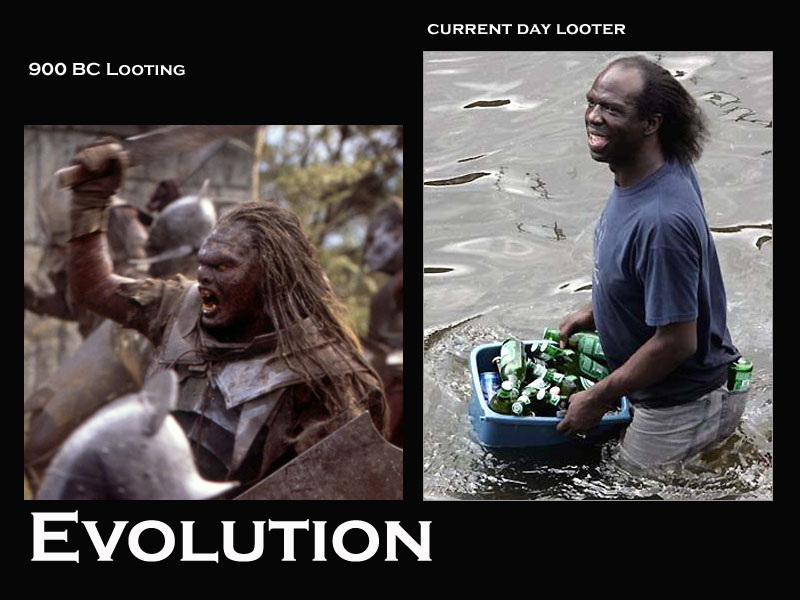

Five fully loaded open-air trucks had arrived the day before from Indiana. Volunteers came from as far away as California. Red Cross volunteers were receiving dozens of unannounced deliveries every day.
#THE LOOTER KATRINA FULL#
Relief efforts were in full swing at the Jackson Coliseum, where the biggest problem wasn't housing the evacuees, but getting piles of goods to outlying towns where the need is most desperate. No obvious crying, just tears and more tears rolling down their faces, and they had nowhere to go. What we really want to do is get in there and fight the fires, but we'll do whatever's needed."īob McCormack, who lives in Brooklyn said, "Seeing those little kids on the overpass, that's what motivated me. "Everybody wants to go down, everybody's volunteering. "We're here to pay everyone back," said Brian Clifford who works in Brooklyn with the Engine 231. Several of the men worked day and night at Ground Zero after September 11, 2001, and thought that Katrina was an even more massive human tragedy. The FDNY will require them to work an extra 120 hours during the coming year to make up for the lost time, or the time will come out of their vacation allowances. All of the firefighters were using their personal vacation time to help out with the disaster relief effort. The all-volunteer Disaster Assistance Response Team (DART) were headed to Baton Rouge for three weeks. The urgent response to the hurricane disaster by 19 New York firefighters in the Jackson airport stood as a stark contrast to the apathy of the federal government. We saw a couple of trucks dragging generators and other supplies that clearly were headed for the disaster area.

For example, we saw about five cars pulling trailers, with a makeshift sign announcing that it was for relief. It is a response to the realization that nothing was being done by national, state and local officials to bring help in a timely manner.Įvidence of grassroots relief was everywhere. On the other hand, we saw many examples of the kind of do-it-yourself relief that seems to have sprouted up everywhere. On the way to Jackson, we saw two military convoys, totaling about 18 small vehicles. She told us that she had only left New Orleans a few weeks before, and shook her head as she pondered all the hardship that her friends and family were now suffering.Īs she was checking our receipt for the baby formula, diapers and feminine products that folks in Covington had requested, we told her jokingly: "You're not just going to let us walk off with this stuff?" Suddenly, she got a serious look, and whispered to us, "If it was my choice, I would."ġ p.m. As we left the store with supplies for Louisiana (diapers, baby formula, etc.), we told her that we were delivering the stuff to Covington, Louisiana. But amid images of black looters, some sympathy threatens to give way to anger and disdain.An elderly white woman at the Walmart just south of Memphis, off I-55, was checking the receipts of people leaving the store. No one questions that whites have been moved by the suffering of blacks, and vice versa. "And I don't expect that feeling to go away anytime soon." "Black people are mad because they feel the reason for the slow response is because those people are black and they didn't support George Bush," said Ron Walters, a professor of government and politics at the University of Maryland. In conversations at restaurants, homes, offices, on talk radio and online, it's clear that many blacks and whites view the effects of Katrina differently.Īlthough no group is monolithic in opinion or emotion, many blacks are outraged that so many of their own were left behind in New Orleans with no evacuation plan and no urgent effort to rescue them. Nobody wants to see any American suffer." But people are doing what they can for Americans. "The African-American community has obviously been very heavily affected. "That Americans would somehow in a color-affected way decide who to help and who not to help, I, I just don't believe it," she said. Secretary of State Condoleezza Rice, the most prominent black person in the Bush administration, downplayed the criticism. These are American citizens," Watson said. "'Refugee' calls up to mind people that come from different lands and have to be taken care of.


 0 kommentar(er)
0 kommentar(er)
